June 29, 2025
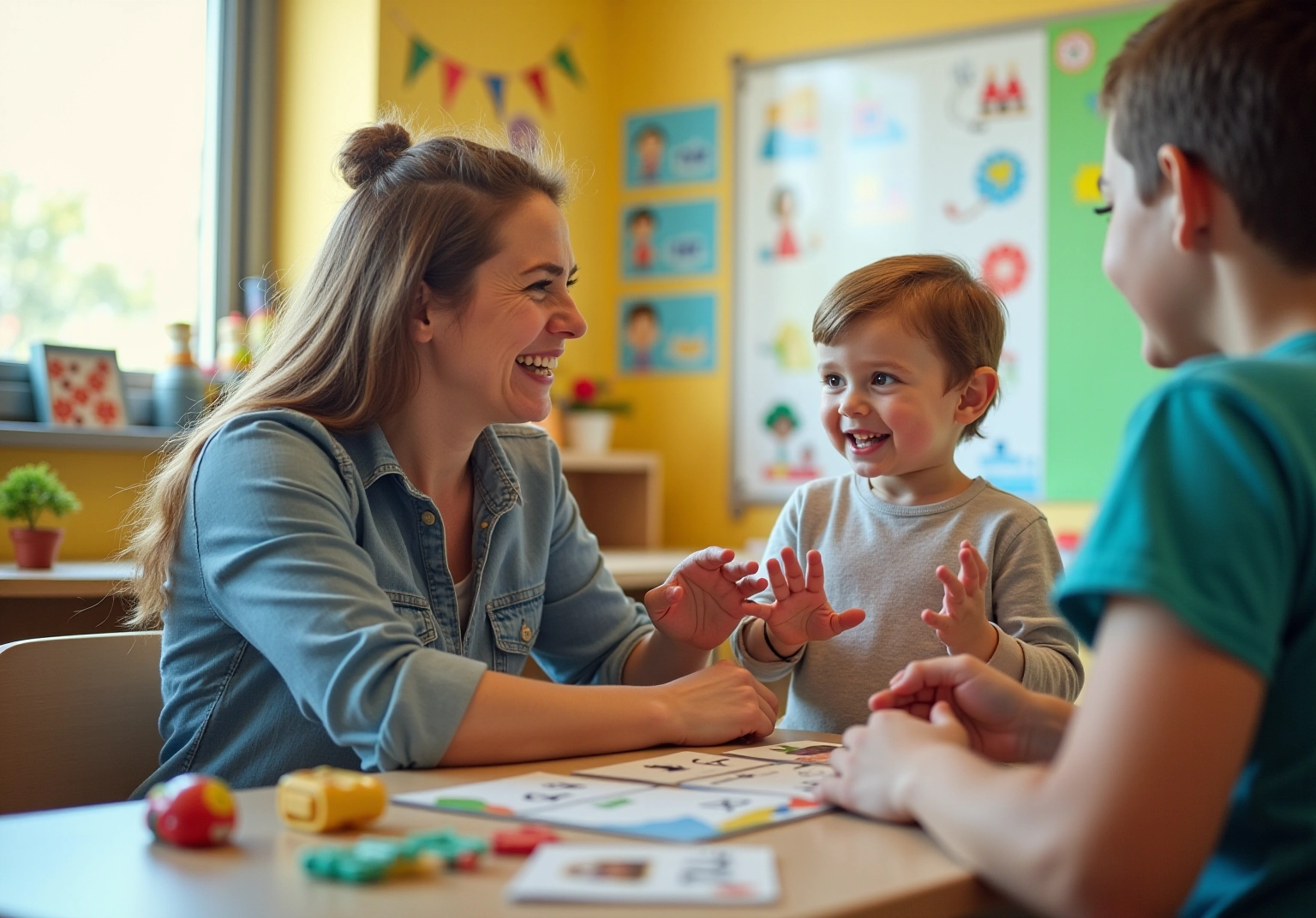
The primary focus of this article is the exploration of strategies and solutions aimed at enhancing response generalization in Applied Behavior Analysis (ABA) therapy. Effective techniques are paramount; for instance, teaching multiple exemplars and utilizing naturalistic settings are crucial methods that facilitate individuals with autism in transferring learned behaviors across various contexts. This transferability ultimately leads to significant improvements in their social and communication skills. By implementing these strategies, practitioners can ensure that the skills acquired in therapy are effectively applied in real-world situations, thereby maximizing the therapeutic impact.
Understanding the nuances of response generalization in Applied Behavior Analysis (ABA) therapy is crucial for enhancing therapeutic outcomes. This concept, which allows individuals to apply learned behaviors in new contexts, opens doors to improved communication and social interactions.
Yet, many practitioners encounter significant challenges in effectively facilitating this transfer of skills. What strategies can be employed to overcome these barriers and ensure that therapeutic gains translate into real-world success?
Addressing these questions is vital for practitioners committed to fostering meaningful change.
The phenomenon of exhibiting new or untrained actions that fulfill the same role as previously learned behaviors when faced with a specific stimulus is a critical concept in behavioral analysis. For instance, when a child learns to greet a friend with 'hi,' they may begin to employ variations such as 'hello' or 'what's up' in similar contexts. This adaptability signifies the flexibility of learned behaviors across various situations, which is essential in in ABA. Such insights enhance the effectiveness of therapeutic interventions, showcasing the importance of understanding these dynamics.
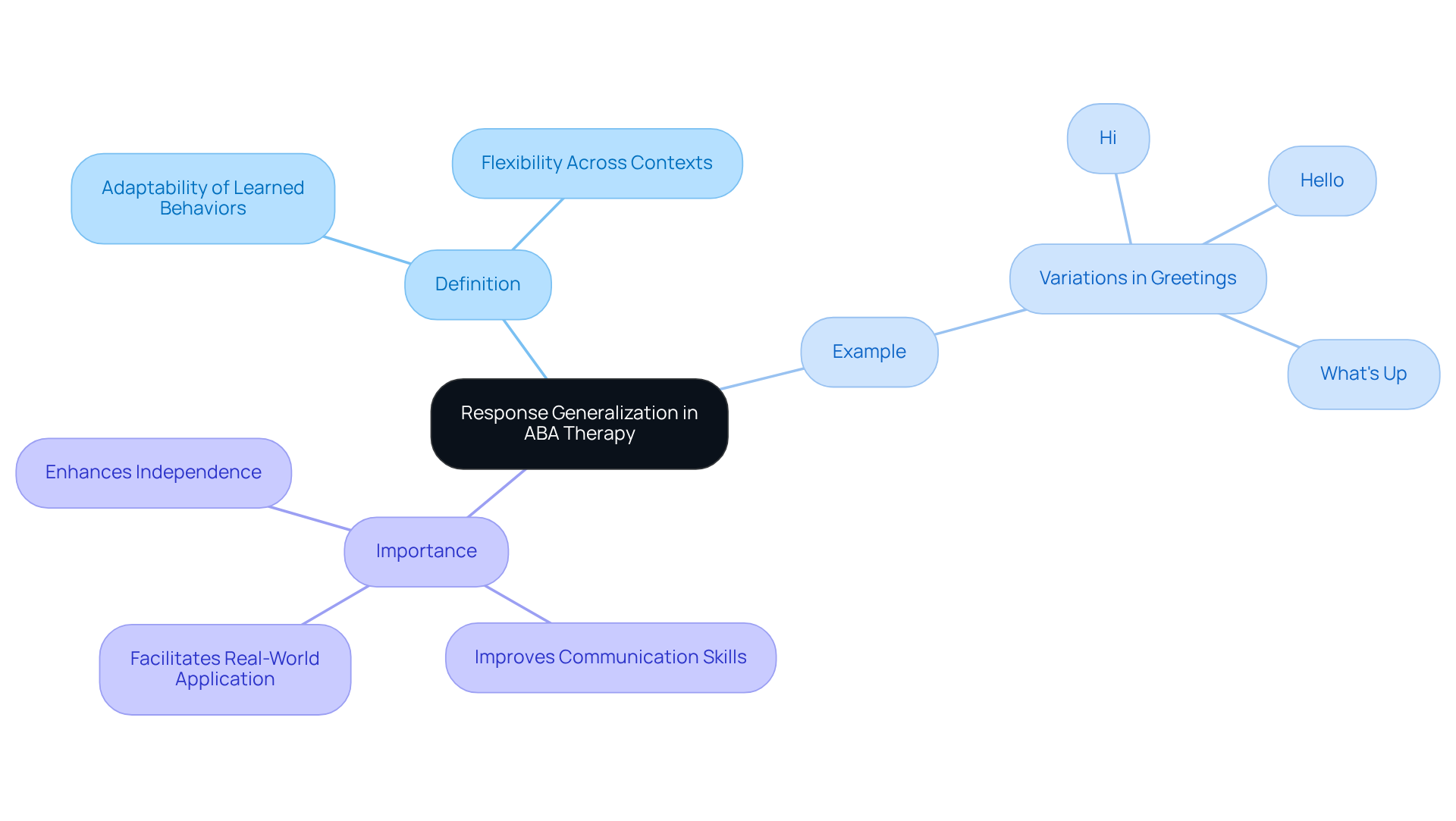
In Applied Behavior Analysis (ABA) therapy, generalization is classified into two primary types: stimulus generalization and reaction generalization. Did you know that the demand for Board Certified Behavior Analysts (BCBAs) is expected to rise by 25% by 2026? This statistic underscores the importance of effective strategies in ABA therapy.
Studies show that efficient broadening techniques greatly enhance the application of acquired capabilities in practical environments, ultimately improving the quality of life for individuals with autism. Understanding these distinctions is crucial for developing that facilitate skill transfer across diverse environments, ensuring that therapeutic gains translate into meaningful everyday interactions.
As Yitz Diena states, "This ability, referred to as abstraction, is fundamental to ensuring that behavioral improvements translate into real-world success." Moreover, caregiver participation is crucial in encouraging the transfer of acquired abilities in daily situations. Addressing the challenges individuals with autism face in response generalization is vital for maximizing the effectiveness of ABA interventions. Are you ready to explore how effective strategies can enhance the impact of ABA therapy?
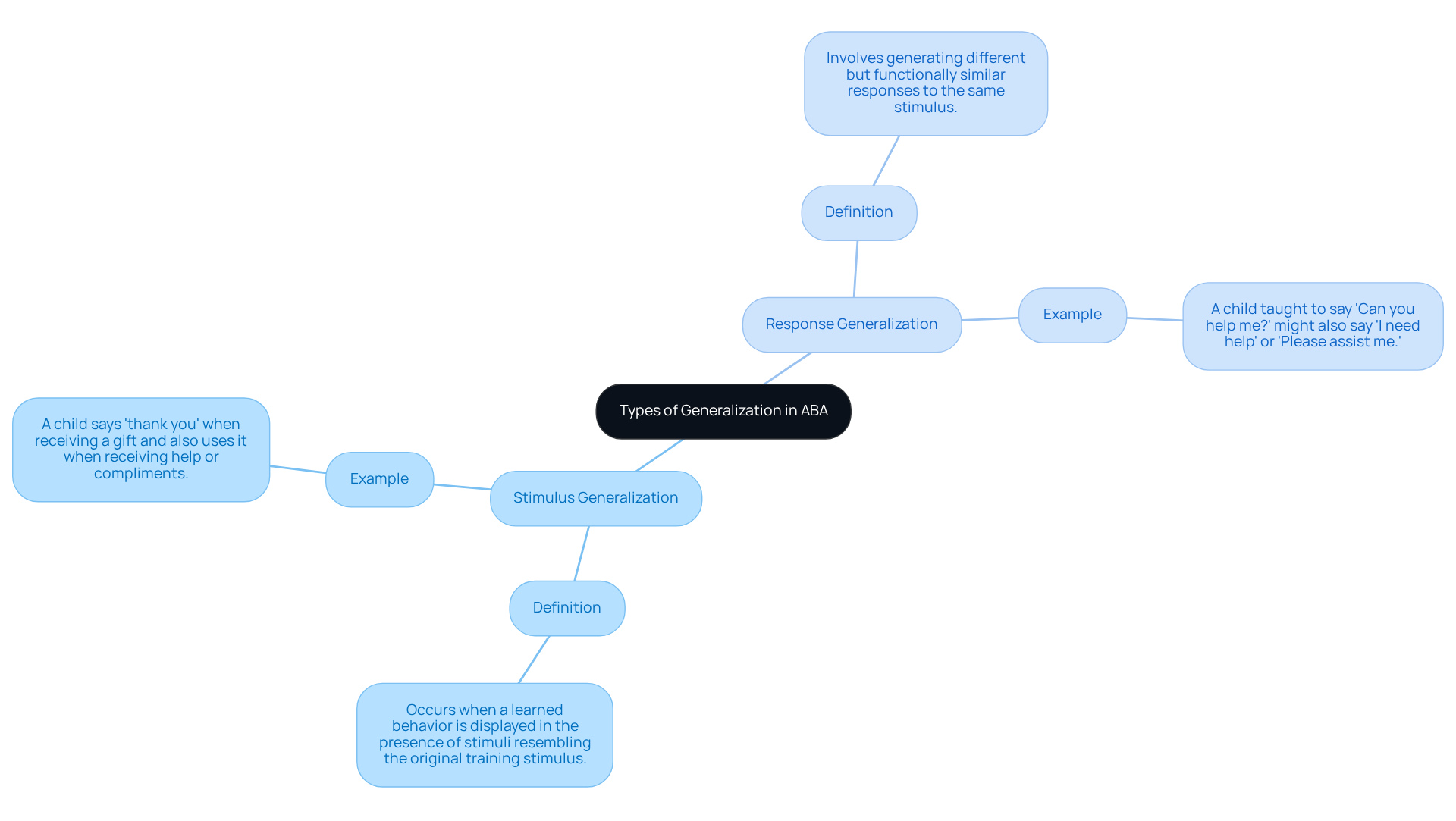
To enhance response generalization in ABA therapy, consider the following strategies:
Implementing these strategies can significantly improve the likelihood of response generalization ABA, which will help learned behaviors transfer to new situations and ultimately enhance the effectiveness of ABA therapy.
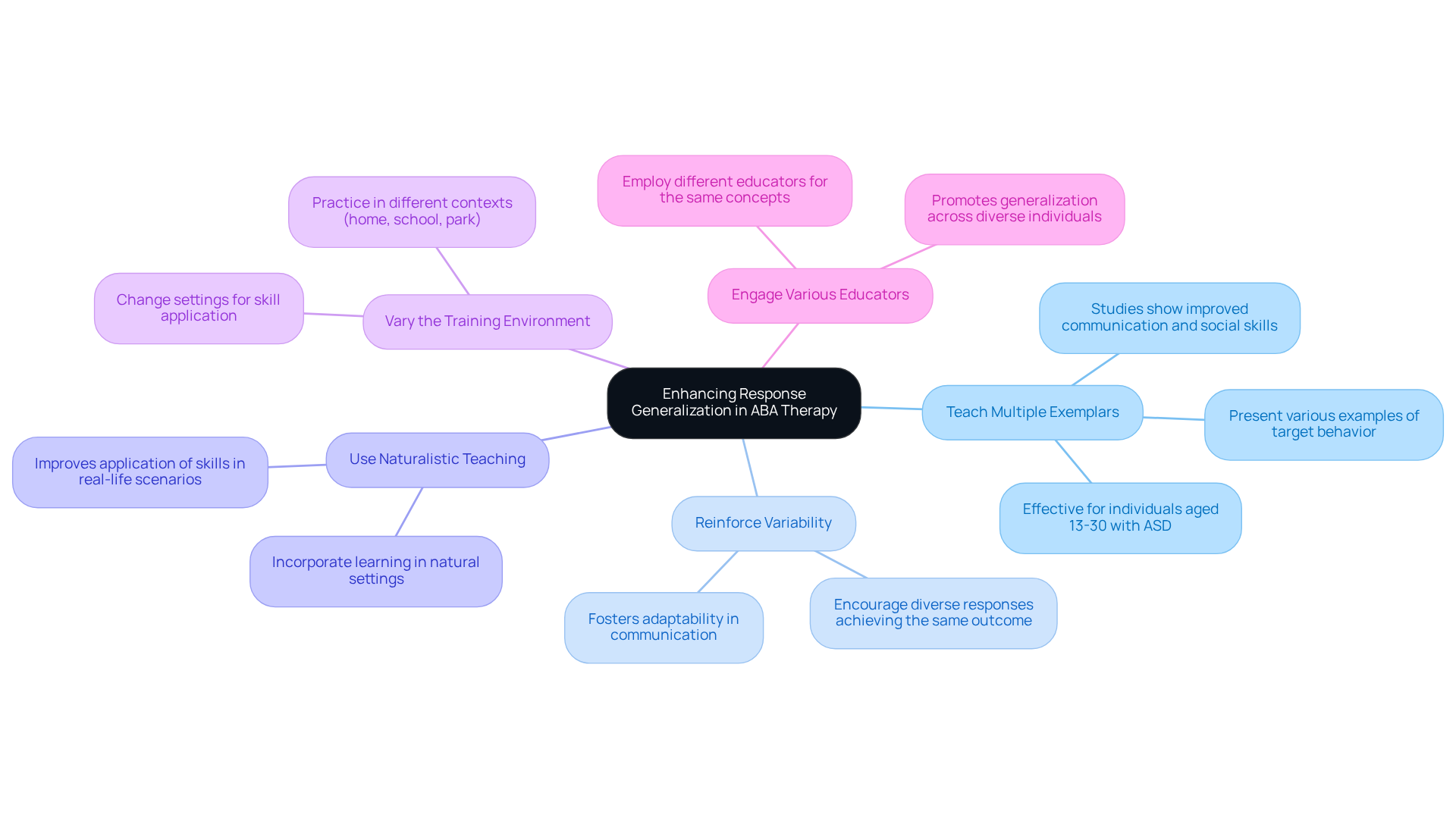
Several barriers can impede effective response generalization in ABA therapy:
By recognizing and addressing these barriers, practitioners can significantly enhance the effectiveness of their ABA interventions, thereby improving response generalization and ultimately supporting better outcomes for their clients.
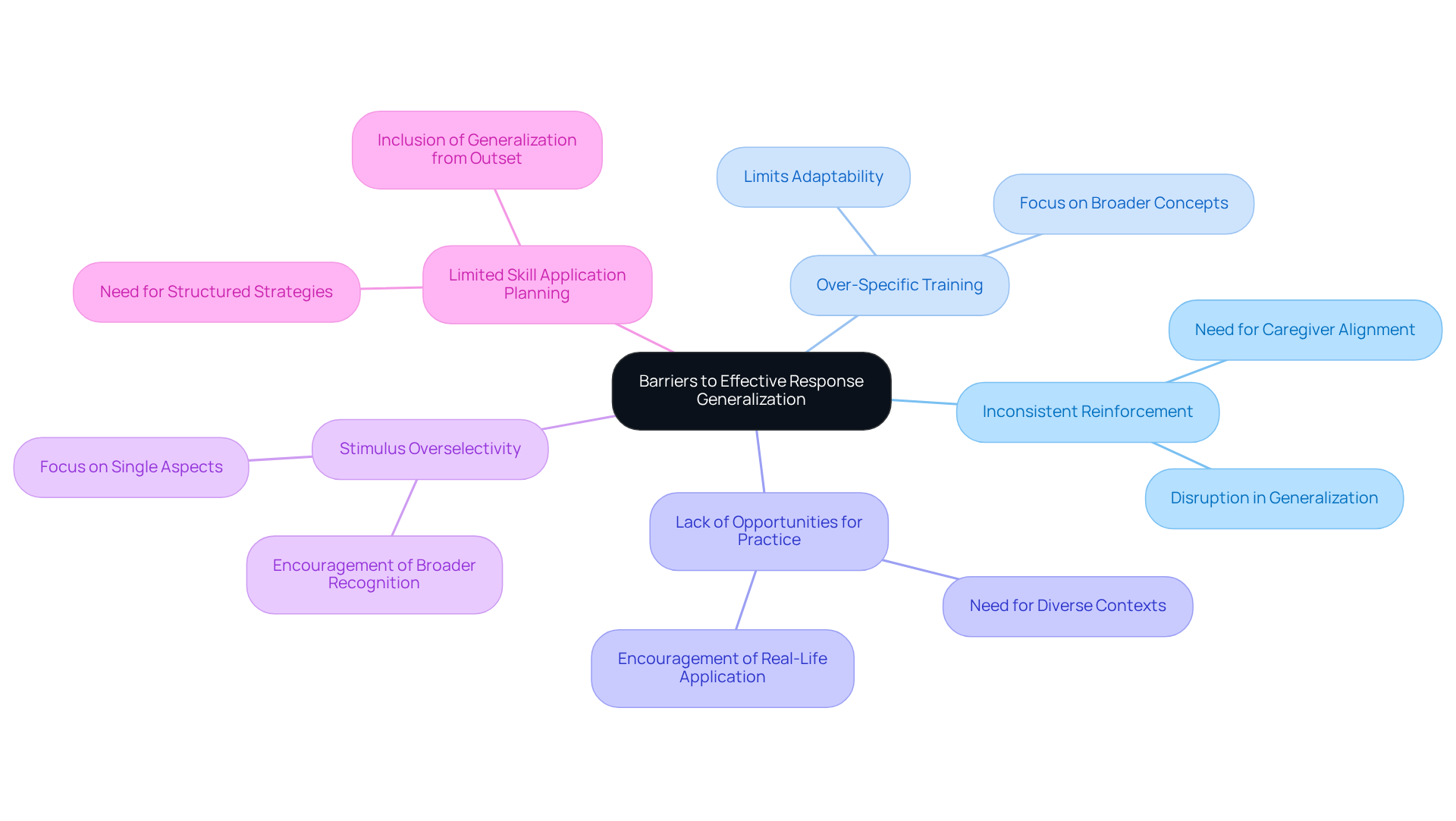
Understanding response generalization in Applied Behavior Analysis (ABA) therapy is essential for fostering adaptability in learned behaviors. This concept highlights the importance of individuals applying previously learned skills to new situations, ensuring that therapeutic gains extend beyond the confines of structured environments. By emphasizing the flexibility of responses, practitioners can better equip learners to navigate diverse social contexts.
The article covers key distinctions between stimulus and response generalization, illustrating how these concepts play a vital role in effective ABA interventions. Strategies such as:
are pivotal in enhancing response generalization. Additionally, recognizing barriers like inconsistent reinforcement and limited skill application planning is crucial for optimizing therapeutic outcomes. By addressing these challenges, therapists can facilitate a smoother transfer of skills into real-world scenarios.
Ultimately, the significance of response generalization in ABA therapy cannot be overstated. It serves as a foundation for improving communication and social interactions, which are critical for individuals with autism. By implementing effective strategies and overcoming barriers, practitioners can enhance the overall impact of ABA interventions, empowering learners to thrive in various environments. Embracing these principles not only enriches therapeutic practices but also contributes to the broader goal of promoting meaningful engagement and independence in everyday life.
What is response generalization in ABA therapy?
Response generalization in ABA therapy refers to the phenomenon where individuals exhibit new or untrained actions that serve the same function as previously learned behaviors when encountering a specific stimulus.
Can you provide an example of response generalization?
An example of response generalization is when a child learns to greet a friend with 'hi' and then starts using variations like 'hello' or 'what's up' in similar contexts.
Why is response generalization important in ABA therapy?
Response generalization is important in ABA therapy because it demonstrates the flexibility of learned behaviors across different situations, which enhances the effectiveness of therapeutic interventions.
Our expert recruitment strategies and AI-driven sourcing ensure that you receive top-notch candidates quickly, without compromising on quality. Whether you’re looking for BCBAs, Clinical Directors, or RBTs, we’ve got you covered.